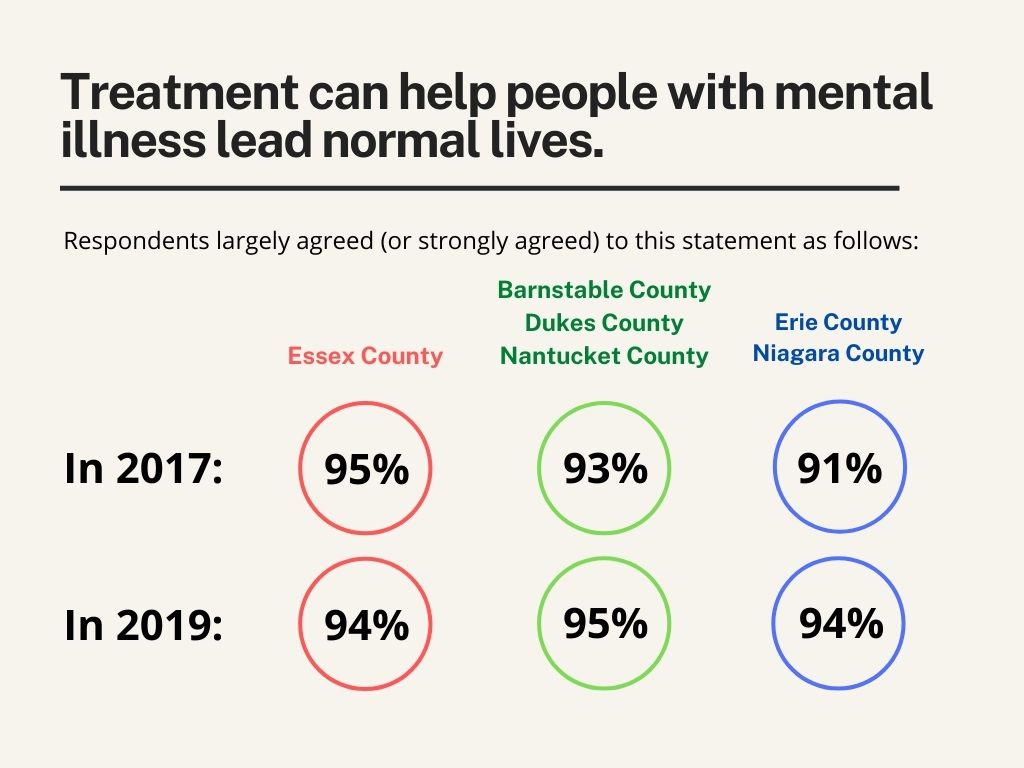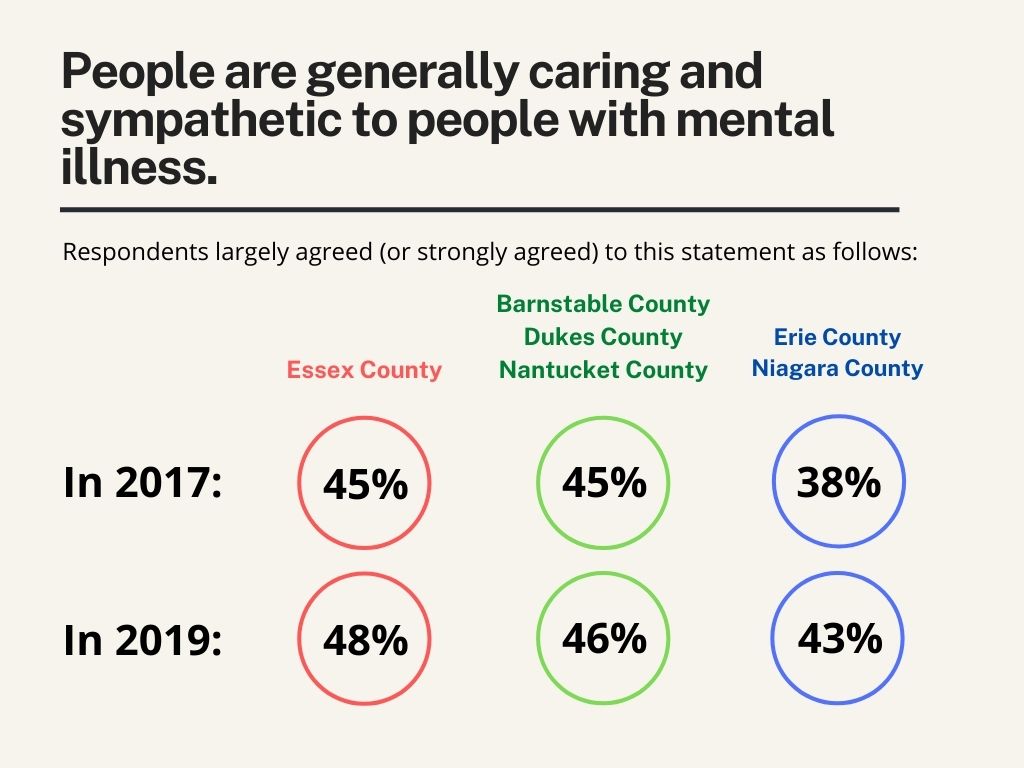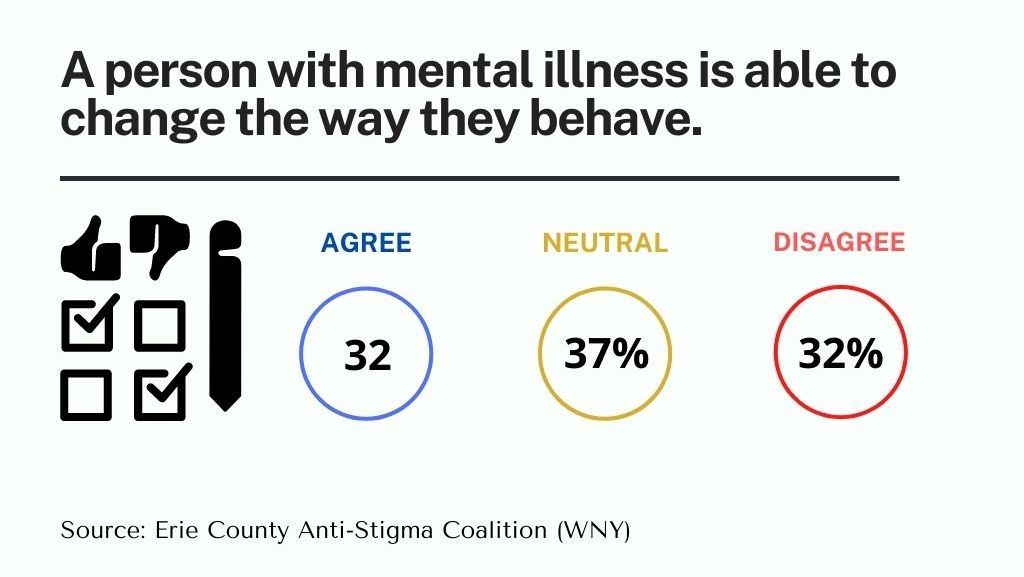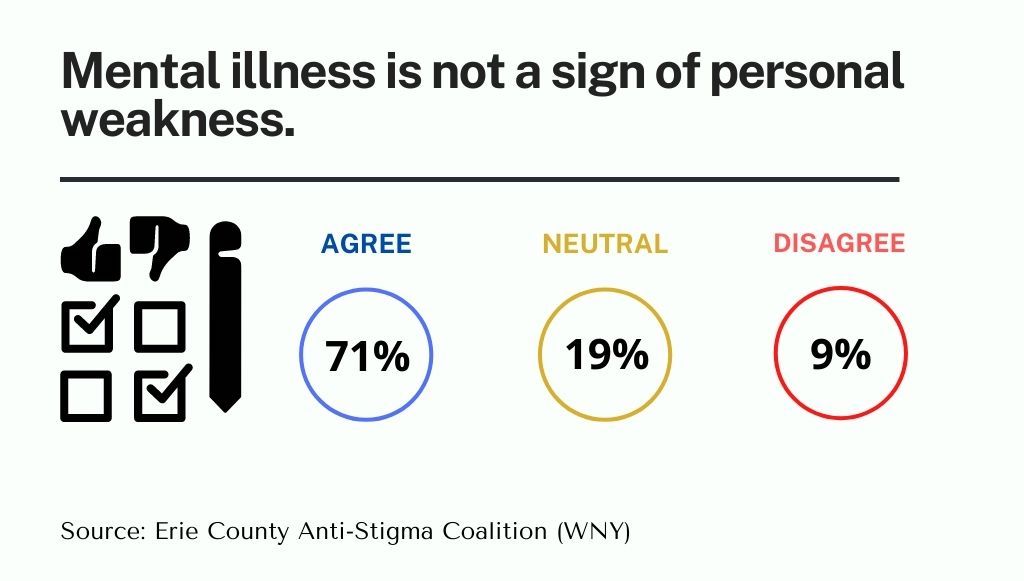One of the aspirational goals for our mental health grantmaking at the Peter & Elizabeth Tower Foundation is pretty simple: Stigma related to mental illness is eliminated. The recently launched TowerDATA Dashboard looks at community data that may be able to tell us if the counties where we fund are seeing movement towards a reduction in stigma. This is always going to be an inexact science. Stigma means different things, depending on whom you ask and how you ask them. The way a survey question is phrased can skew responses. But data can get a conversation started.
For the counties where we fund, we now have several data points on attitudes towards people with mental illness. In 2017, 4,000 random households across our funding geographies received surveys. Fifty percent were completed and mailed back. The survey was repeated in 2019 – this time to 6,000 households. Again, the response rate was a robust 50%.
Here is how people responded to two comments designed to unpack attitudes toward people with mental illness.


Interesting. If you just looked at this first indicator of public attitude, you might be tempted to declare victory. Respondents widely think of mental illness as a treatable condition. What’s more, this belief even gained some ground by 2019.
But hang on. The second indicator tells us that fewer than half of respondents (and as low as 38%!) think that other people are particularly sensitive to the challenges of people with mental illness. This suggests that many respondents feel that “we get people with mental illness, but the general public lags far behind.” The lowest number from 2017 (38% in Erie and Niagara Counties) did see movement in the right direction, up to 43%.
The researchers that conducted the survey do point out the following: When considering the data, please remember that people affected individually or by association with family or friends by intellectual disabilities, learning disabilities, or mental health issues may have been more likely to respond to the survey. The results may not be representative of the entire population. This feels like it could explain some of what we see with these results. It might only take a few overheard, insensitive comments for family members of an individual with a mental illness to paint the general public with a pretty broad brush.
And that is only one survey. The Erie County Anti-Stigma Coalition commissioned an online survey with questions designed to get at similar issues. In 2020, 400 Erie County residents offered the following responses to two questions:


Thirty-two percent think that an individual with a mental illness can’t change their behavior?! Compare that to the vast majority from the TowerDATA project survey that believe treatment can help people with mental illness lead normal lives. Are people in Erie County generally more down on people with mental illness? Is it the way the question is worded? Treatment helps masks behavioral irregularities, but the leopard can’t really change its spots? Is that kind of thinking at play here? The Erie County-specific survey has more data points — the survey was first conducted in 2016 and was repeated in 2018 and 2019. There has been some positive movement. In 2016, only 25% of respondents thought that people with mental illness could change their behavior. That has crept up to 32%.
Responses to the second indicator are a bit more encouraging. Most don’t regard mental illness as an actual character flaw. At its highest, in 2019, this was true of 79% of respondents. This dipped to 71% in 2020 because a few more people were neutral on the issue.
The tagline for the Erie County Anti-Stigma campaign is “join the conversation.” Talking openly and honestly about mental health issues is the enemy of stigma. We hope these measurements of public perceptions will spark conversations about the work that still needs to be done. Eventually, we hope they will map stigma’s extinction. Until then, we’ll keep talking.
For more information on the TowerDATA dashboard, visit the data dashboard section of our website: https://thetowerfoundation.org/tower-data/

